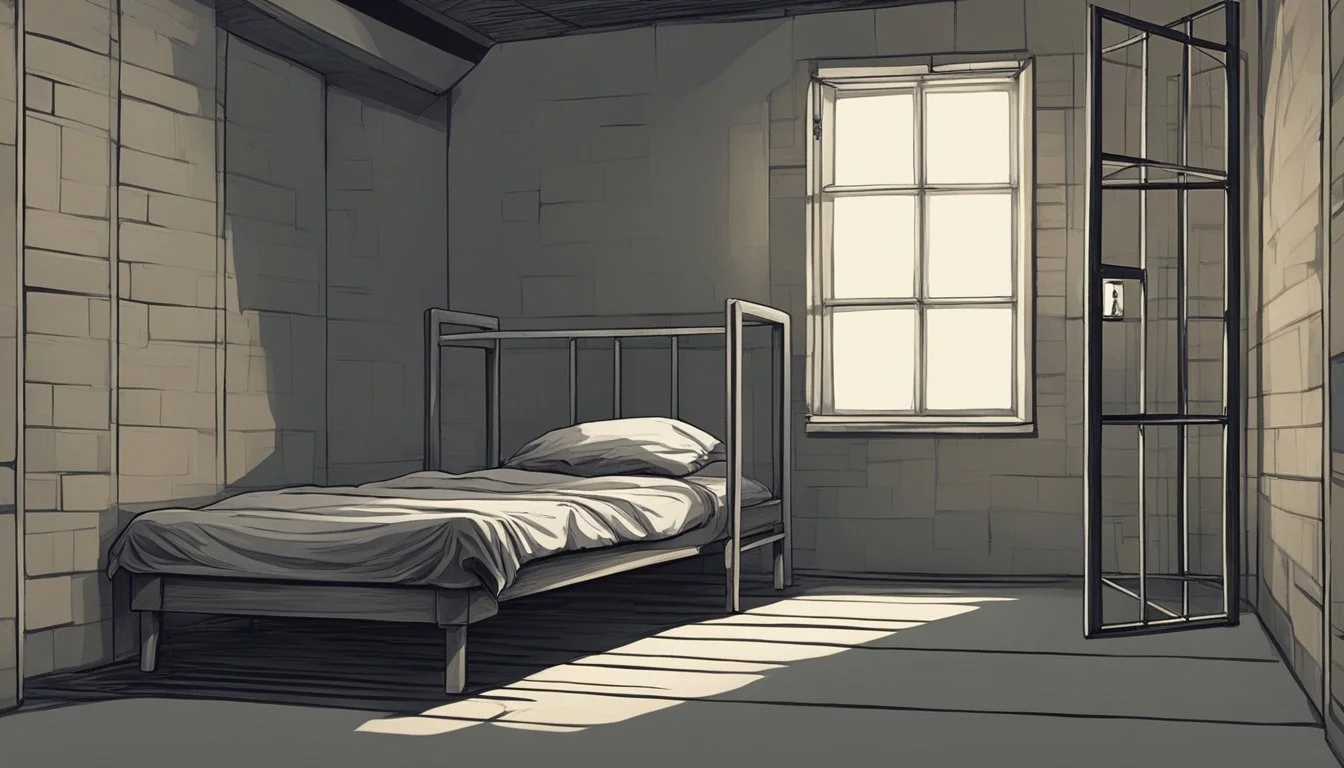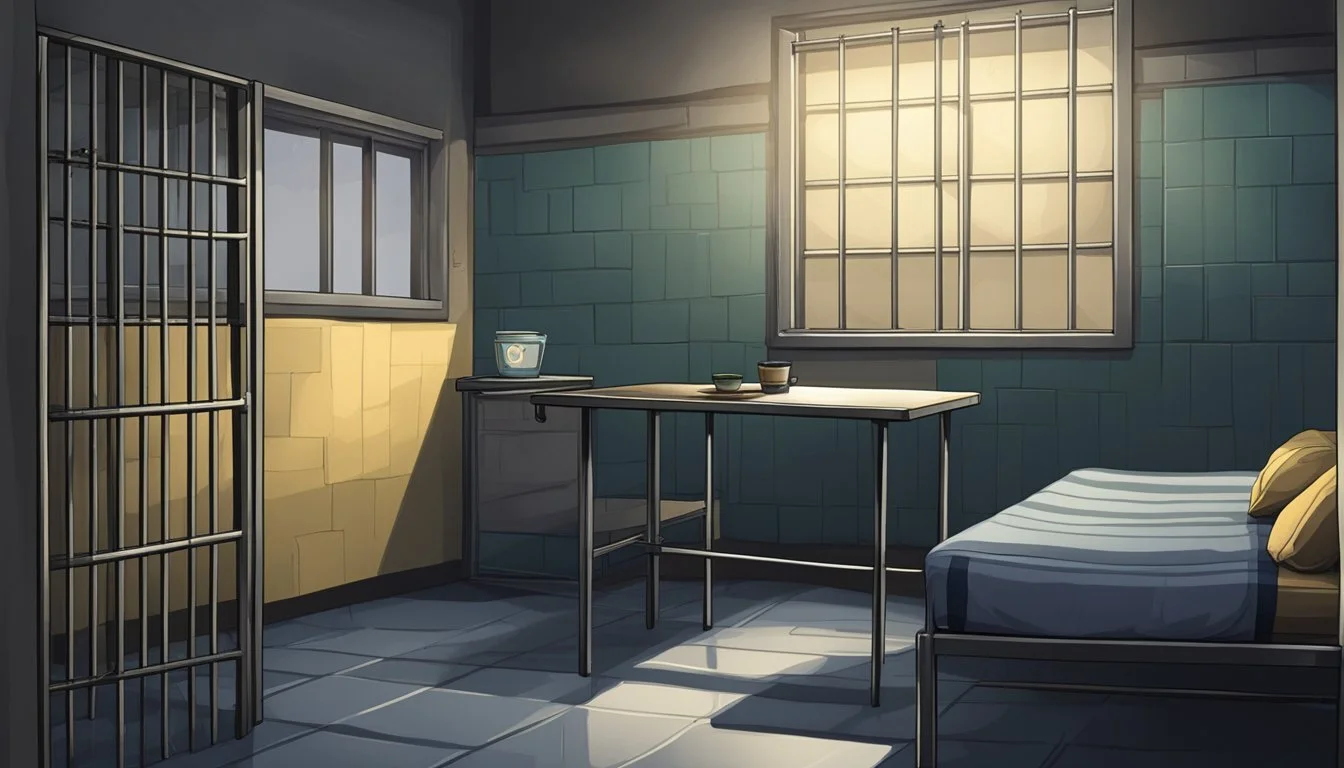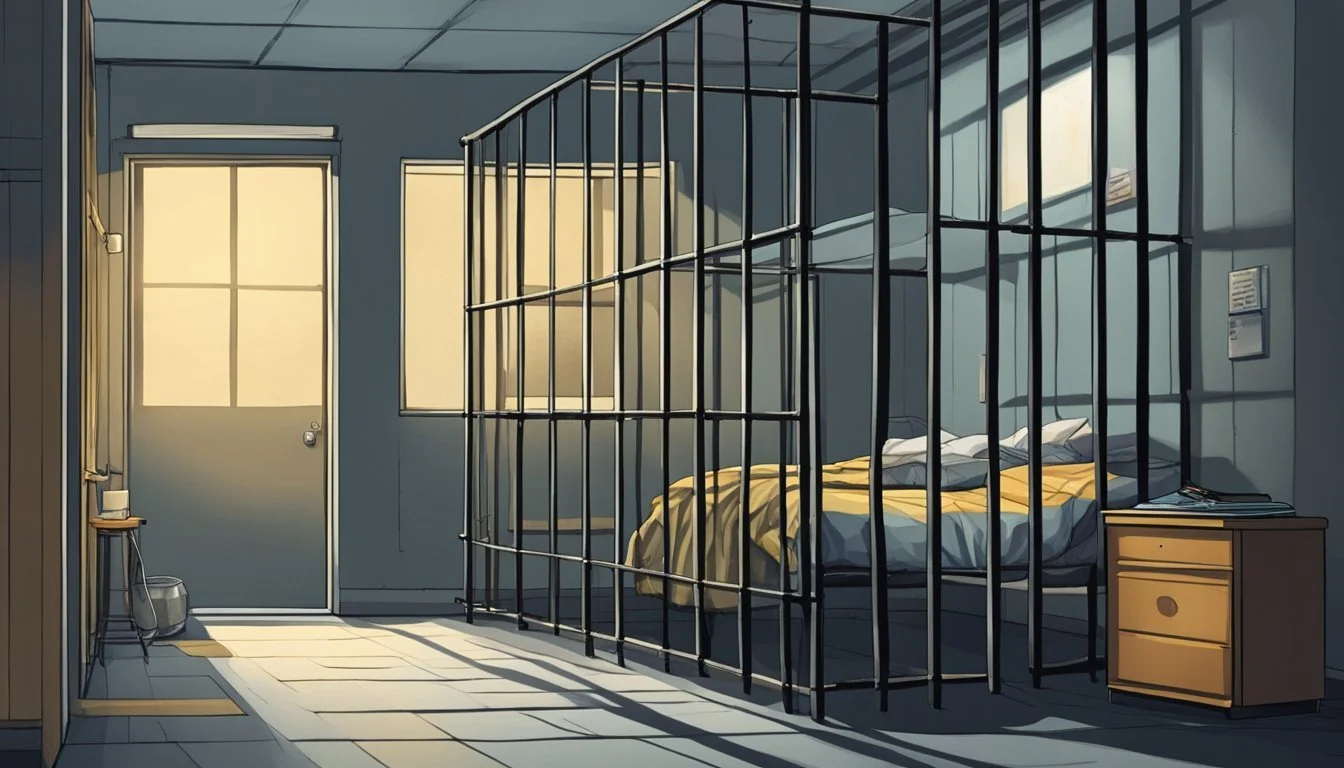Is Charles Cullen, Angel of Death Nurse, Still Alive in Prison?
Current Status Update
Charles Cullen, known as the "Angel of Death," committed a series of horrific murders while working as a nurse in various hospitals across New Jersey and Pennsylvania. His crimes spanned from 1988 to 2003, during which he killed at least 29 patients by administering lethal doses of medication. Charles Cullen is currently alive and serving multiple life sentences at New Jersey State Prison in Trenton.
Cullen's case gained widespread attention due to the shocking nature of his crimes and the length of time he managed to evade detection. The true extent of his murders remains unknown, with some estimates suggesting he may have killed up to 400 patients. His story has been the subject of books and films, including "The Good Nurse," which explores his crimes and the efforts to bring him to justice.
The case of Charles Cullen raises important questions about hospital safety protocols and the need for better screening of healthcare professionals. It also highlights the devastating impact of his actions on the families of his victims and the broader community. Cullen's imprisonment ensures he can no longer harm patients, but the legacy of his crimes continues to resonate in the medical field.
Background of Charles Cullen
Charles Cullen was born on February 22, 1960, in West Orange, New Jersey. He grew up in a working-class Catholic family as the youngest of eight children.
Cullen's childhood was marked by tragedy and difficulty. His father, a bus driver, died when Charles was only seven months old. Cullen later described his early years as "miserable" and claimed to have been bullied by his siblings and schoolmates.
After high school, Cullen joined the U.S. Navy in 1978. He served as a petty officer third class aboard the submarine USS Woodrow Wilson. During his naval service, Cullen reportedly struggled with depression and made several suicide attempts.
Following his discharge from the Navy in 1984, Cullen decided to pursue a career in healthcare. He enrolled in nursing school at the Mountainside Hospital School of Nursing in Montclair, New Jersey.
Cullen graduated from nursing school in 1987 and began working as a registered nurse. Over the next 16 years, he worked at various hospitals and nursing homes in New Jersey and Pennsylvania.
Despite his professional success, Cullen's personal life continued to be troubled. He struggled with mental health issues and substance abuse problems throughout his career as a medical professional.
Crimes and Victims
Charles Cullen's crimes spanned multiple healthcare facilities across two states. He used his position as a nurse to carry out a series of murders through drug overdoses.
Hospitals and Medical Centers Involved
Cullen worked at various hospitals and medical centers in New Jersey and Pennsylvania. His known crimes occurred at Somerset Medical Center, Saint Barnabas Medical Center, and Liberty Nursing and Rehabilitation Center in New Jersey. In Pennsylvania, he committed murders at Easton Hospital and other facilities.
Cullen moved frequently between jobs, often resigning when suspicions arose. This pattern allowed him to continue his killing spree for over 16 years.
Substances Used in Murders
Cullen primarily used two drugs to murder his victims: digoxin and insulin. Digoxin, a heart medication, can be lethal in high doses. Insulin, when administered inappropriately, can cause fatal drops in blood sugar.
He administered these drugs intravenously, making detection difficult. Cullen's medical knowledge allowed him to manipulate medication dosages effectively.
The Poison Information and Education System later played a role in identifying the substances used in the murders.
Profile of the Victims
Cullen's victims were primarily patients under his care. They ranged in age and health status, from the elderly to younger individuals. Some were already critically ill, while others were recovering and close to being discharged.
He claimed to have killed 13 patients at Somerset Medical Center alone. However, the total number of victims is believed to be much higher, possibly reaching 400.
Cullen's motives remained unclear, but he often targeted vulnerable patients. His actions earned him the moniker "Angel of Death" in the media.
The Investigation and Arrest
The investigation into Charles Cullen's crimes involved key figures and meticulous evidence gathering. Law enforcement and healthcare professionals worked together to uncover the truth behind the suspicious patient deaths.
Key Figures in the Case
Detective Danny Baldwin and Detective Tim Braun led the investigation. They collaborated closely with Amy Loughren, a nurse who worked with Cullen at Somerset Medical Center. Loughren's cooperation proved crucial in gathering evidence against Cullen.
Prosecutor Wayne Forrest oversaw the legal aspects of the case. His team worked diligently to build a solid case against the suspected serial killer.
Discovery and Evidence Gathering
The investigation began after Somerset Medical Center reported suspicious patient deaths to the New Jersey Poison Control Center. Investigators examined hospital records and medication logs, focusing on the Pyxis Medstation data.
Loughren provided valuable insights into Cullen's behavior and work patterns. She wore a wire to record conversations with Cullen, gathering incriminating statements.
Detectives analyzed Cullen's employment history across various hospitals. They uncovered a pattern of patient deaths and medication discrepancies that followed his career moves.
The evidence led to Cullen's arrest on December 12, 2003. He was charged with murder and attempted murder, marking the end of his 16-year killing spree.
Trial and Conviction
Charles Cullen pleaded guilty to multiple counts of murder in 2004. He admitted to killing 29 patients in New Jersey and Pennsylvania hospitals over his 16-year nursing career.
As part of a plea deal to avoid the death penalty, Cullen agreed to cooperate with authorities. He received 11 consecutive life sentences for his crimes in New Jersey.
The legal proceedings took place in Somerset County, New Jersey. Cullen faced additional charges in Pennsylvania, where he also pleaded guilty to murder.
In total, Cullen received 18 life sentences. He is not eligible for parole until 2388, effectively ensuring he will spend the rest of his life in prison.
Cullen is currently incarcerated at New Jersey State Prison in Trenton. This maximum security facility houses some of the state's most dangerous offenders.
The case drew significant media attention due to the shocking nature of Cullen's crimes. It raised serious questions about hospital hiring practices and oversight of medical professionals.
Cullen's Imprisonment Status
Charles Cullen, the former nurse convicted of murdering multiple patients, is currently incarcerated at New Jersey State Prison in Trenton. He was sentenced in 2006 to 11 consecutive life terms, ensuring he will spend the rest of his life behind bars.
Cullen's crimes rank him among the most prolific serial killers in American history. His guilty plea to 29 murders resulted in a plea deal that spared him the death penalty in exchange for his cooperation with investigators.
The terms of Cullen's sentence preclude any possibility of parole. He will remain in maximum security confinement for the duration of his natural life. As of 2024, Cullen is 64 years old and has served approximately 18 years of his sentence.
Prison officials maintain strict surveillance on Cullen due to the notoriety of his case and the severity of his crimes. His daily life is highly regimented, with limited privileges and constant monitoring to ensure the safety of staff and other inmates.
Despite the passage of time, Cullen's case continues to draw attention from true crime enthusiasts and medical ethics experts. His imprisonment serves as a stark reminder of the devastation caused by his actions and the importance of vigilance in healthcare settings.
Cultural Impact and Media Representation
Charles Cullen's crimes have left a lasting mark on popular culture, sparking intense public interest and numerous adaptations across various media. His story has been explored in books, films, and documentaries, often drawing comparisons to other notorious criminals.
Literature and Journalism
Charles Graeber's book "The Good Nurse" brought Cullen's case to widespread attention. Published in 2013, it detailed Cullen's crimes and the investigation that led to his capture. The book became a New York Times bestseller and was praised for its in-depth reporting.
Several true-crime podcasts have also covered Cullen's case, analyzing his methods and motivations. These productions often focus on the systemic failures that allowed Cullen to continue working in hospitals despite suspicions about his conduct.
Film Adaptation
Netflix's 2022 film "The Good Nurse" brought Cullen's story to a global audience. Directed by Tobias Lindholm, the movie stars Eddie Redmayne as Charles Cullen and Jessica Chastain as Amy Loughren, the nurse who helped authorities capture him.
The film received critical acclaim for its performances and taut direction. It highlighted the institutional failures that enabled Cullen's killing spree and the courage of those who worked to stop him.
Comparison with Other Infamous Criminals
Cullen's case is often discussed alongside other notorious serial killers in the medical field, such as Harold Shipman and Donald Harvey. His "Angel of Death" moniker draws parallels to similar cases where healthcare professionals abused their positions of trust.
True-crime enthusiasts frequently compare Cullen to other high-profile criminals like Jeffrey Dahmer, noting differences in motive and method. These comparisons often spark debates about the nature of evil and the factors that lead individuals to commit heinous crimes.
Final Reflections on the Case
Charles Cullen's crimes shook the medical community to its core. His actions led to significant changes in hospital hiring practices and medication tracking systems.
The true motive behind Cullen's murders remains unclear. Despite pleading guilty to 29 murders, experts believe the actual number could be as high as 400.
Cullen's history of depression and suicide attempts prior to his crimes raises questions about mental health screening in the medical profession.
The case highlighted vulnerabilities in the healthcare system, particularly regarding the ease with which Cullen moved between jobs despite suspicious circumstances.
Justice was served with Cullen's multiple life sentences, ensuring he will never be released. However, the absence of the death penalty in New Jersey spared him from lethal injection.
Cullen's actions have had lasting impacts:
Stricter background checks for medical personnel
Improved drug inventory systems
Enhanced communication between healthcare facilities
The tragedy of Cullen's victims and their families remains a somber reminder of the trust placed in medical professionals and the devastating consequences when that trust is betrayed.
Legal and Ethical Considerations in Healthcare
The case of Charles Cullen highlights significant legal and ethical issues in healthcare. Medical professionals have a duty to protect patients and uphold ethical standards.
Hospitals are required to have robust privacy policies and terms of use to safeguard patient information. These policies also govern staff conduct and responsibilities.
Background checks and employment verification are crucial. Cullen's 16-year career across multiple hospitals exposed gaps in this process.
Healthcare facilities must report misconduct to state nursing boards. Failure to do so can enable dangerous individuals to continue working in the field.
Patient safety should be the top priority. Implementing strict medication protocols and monitoring systems can help prevent unauthorized access to drugs.
Ethical considerations extend to hiring practices. Thorough vetting of candidates, including mental health evaluations, may be necessary for certain positions.
Legal liability is a significant concern for healthcare institutions. Proper documentation and reporting procedures are essential to protect both patients and facilities.
Balancing patient privacy with the need to share information between healthcare providers remains an ongoing challenge in the industry.







